Vietnam eyes nuclear revival to bolster energy security
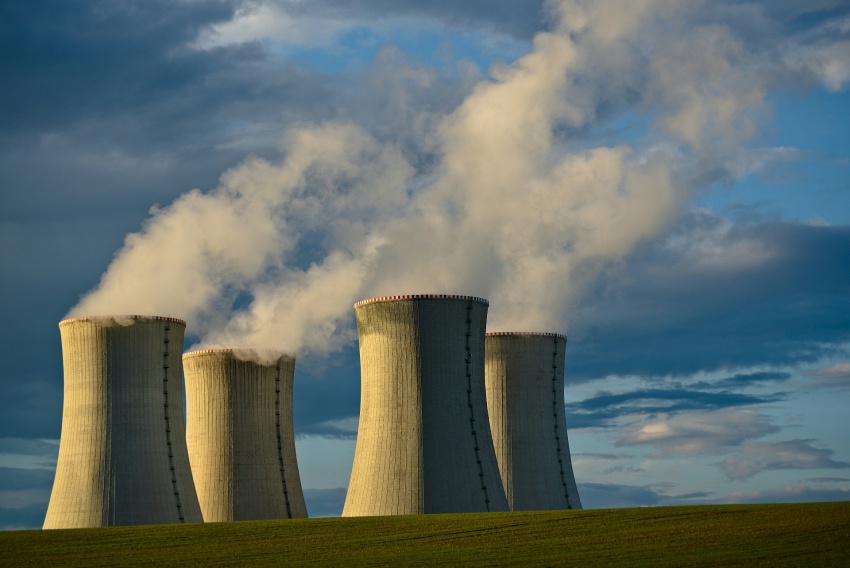 |
| Vietnam eyes nuclear revival to bolster energy security amid renewable push. Photo source: Unsplash |
Under the socioeconomic development plan for 2025, the National Assembly has instructed the government to present a proposal to restart nuclear energy. During a Q&A session on November 12, Prime Minister Pham Minh Chinh confirmed that the government had secured approval to revive the programme.
“Energy security is the primary reason Vietnam must reconsider nuclear power,” said the PM, adding that the government plans to shift the country’s energy base from coal to gas, prioritising domestic production to sustain annual growth of 12 to 15 per cent, as outlined in a September government statement.
With power demand rising by about 10 per cent annually and expected to increase further to support GDP growth targets of 6.5 to 7 per cent by 2025, securing stable energy supplies has become a national priority.
Some experts estimate that for every 1 per cent of economic growth, electricity demand must rise by 1.5 per cent.
Meeting demand and avoiding shortages
In a September report, the Ministry of Industry and Trade (MoIT) warned of potential power shortages between 2026 and 2030, particularly in northern Vietnam. Major power projects, including hydropower, coal, and gas, within the national power development plan, are unlikely to meet target timelines by 2030, the ministry noted.
Of 23 gas-fired projects totalling 30,424 MW, only the O Mon 1 thermal plant is operational, with Nhon Trach 3 and 4 expected to come online by May 2025, according to local media.
For coal, roughly 3,380MW is set to come online by 2030, after which no further coal developments are planned to meet net-zero commitments. Hydropower capacity is expected to reach 29,346MW, though its expansion potential is limited. Offshore and nearshore wind targets are also ambitious, set at 6,000 MW and 21,880MW, respectively.
“The economy could stagnate without adequate electricity,” said Prof. Tran Quoc Tuan from the National Institute for Nuclear Science and Technology at Paris-Saclay University and CEA Liten-INES research director. “Sustainable and diverse energy sources must be prioritised in Vietnam.”
Tuan added that nuclear power could support Vietnam’s energy independence. “Existing power sources will eventually fall short, making energy imports potentially dangerous,” he said.
Nuclear energy offers stability, low emissions, and environmental benefits. Following the Prime Minister’s pledge at COP26 to achieve net-zero emissions, nuclear power has gained renewed attention among energy experts.
As of late 2023, coal accounted for over 33 per cent of Vietnam’s electricity generation, followed by hydropower at 28 per cent, renewable sources (solar and wind) at around 27 per cent, and other sources comprising the remainder.
“Excessive reliance on coal harms the environment and contradicts Vietnam's carbon reduction commitments,” Tuan said.
Experts note that nuclear power emits very low CO2–about six grams per kWh compared to over 1,000g from coal–making it a viable option to balance emissions reduction with energy demand to drive economic development.
Dr Pham Tuan Hiep, a former research engineer with France’s Atomic Energy and Alternative Energies Commission (CEA), now with EDF, said nuclear power’s lifecycle CO₂ emissions–including installation, production, operation, and decommissioning–are minimal, “comparable to or lower than those of wind and solar.”
“A balanced mix of nuclear and renewable energy is essential for Vietnam’s net-zero goal,” Hiep said.
Vietnam once planned a nuclear plant in Ninh Thuan, but the project was shelved in 2016. In 2022, the Economic Committee recommended revisiting nuclear power based on comprehensive assessments of energy supply and demand. While renewable energy dominates the eighth power plan, the inherent instability of solar and wind presents a significant challenge.
“The main issue is meeting peak demand when renewable output is low,” Hiep said, explaining that peak usage often occurs at 8pm, outside optimal solar or wind generation periods.
Although storage and transmission solutions are being developed to optimise renewable capacity, technical hurdles remain, especially as renewable capacity grows. Conversely, nuclear power can adjust output flexibly, meeting fluctuating hourly or even minute-by-minute demand.
Assoc. Prof. Vuong Huu Tan, former director of the Vietnam Atomic Energy Institute, said nuclear energy could stabilise the grid.
“It provides essential backup for renewables and should be incorporated into national planning,” Tan said.
By 2050, wind and solar are expected to provide the largest share of Vietnam’s energy at 63.8 per cent, with hydropower and gas at 15.7 per cent. As renewables increase, baseload capacity must rise to keep the grid stable.
Hydropower and LNG may serve as baseload options, but Tan estimated that by 2050, about 20 per cent of capacity would need to be reserved for baseload, leaving hydropower and gas insufficient as sole backup sources.
“This situation would likely compromise system stability, affecting economic and social development, particularly in high-tech sectors,” Tan added.
Hydropower’s seasonal dependency and its role in flood control and agricultural irrigation limit its use as sole backup for renewables. Similarly, LNG’s viability is uncertain due to fuel import dependency and high costs.
Economics of nuclear power
Economic considerations also play a key role in assessing nuclear power’s feasibility. While nuclear plants have high initial investment costs due to stringent safety standards, their fuel, operational, and maintenance expenses are low. Nuclear plants operate around 7,000 hours annually, generating more power than other plants of similar capacity.
“Nuclear power can be cost-competitive in certain contexts,” Tan said, citing Japan, where nuclear remains the most affordable power option, as other energy sources rely on imported fuel.
Experts believe Vietnam has potential in nuclear energy, with foundational steps already in place. However, Prof. Tuan stressed the need for a clear strategy and consistent, high-level commitment for nuclear development.
The challenge of human resources remains critical.
“Vietnam should revive prior training and research programmes and broaden international cooperation to gain expertise,” Tuan said.
He emphasised that a skilled domestic workforce is essential, noting that relying on foreign experts is unsustainable. He proposed leveraging the expertise of Vietnamese specialists abroad to contribute to the safe operation and maintenance of future nuclear plants.
Once the workforce is prepared, experts recommend selecting appropriate technology and building infrastructure to support nuclear power, ensuring project feasibility, safety, and alignment with Vietnam’s energy security objectives.
 | Navigating Asia-Pacific’s renewable energy landscape Despite starting from a low base, renewable energy is experiencing robust growth in Asia-Pacific, with installed generation capacity increasing at an average compound annual growth rate of 9 per cent. By 2030, renewable energy is expected to account for 30-50 per cent of the power generation mix across most Asia-Pacific markets. |
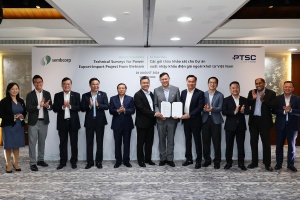 | Data packages take centre stage for Vietnam-Singapore offshore renewable energy project PetroVietnam Technical Services Corporation (PTSC) and Sembcorp Utilities Pte. Ltd. (SCU) of Singapore held an awards ceremony on August 28 for wind and metocean measurement services and geotechnical desktop study packages. |
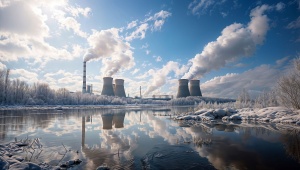 | Vietnam exploring nuclear energy development The government has directed the Ministry of Industry and Trade (MoIT) to study nuclear energy practices from other countries to propose its development in Vietnam. |
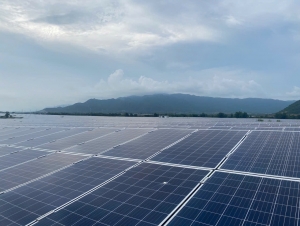 | High-quality workforce embedded in Ninh Thuan's renewable energy development Thanks to international cooperation and close collaboration with businesses, the quality of workforce training for the renewable energy sector is steadily improving, paving the way for Ninh Thuan to become a new renewable energy hub. |
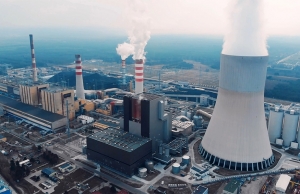 | A nuclear focus for energy security Amendments to the Electricity Law set out policies on nuclear power development, with a proposal for the state to have a monopoly in investing in the construction of nuclear power plant projects. |
What the stars mean:
★ Poor ★ ★ Promising ★★★ Good ★★★★ Very good ★★★★★ Exceptional
Related Contents
Latest News
More News
- Kurz Vietnam expands Gia Lai factory (February 27, 2026 | 16:37)
- SK Innovation-led consortium wins $2.3 billion LNG project in Nghe An (February 25, 2026 | 07:56)
- THACO opens $70 million manufacturing complex in Danang (February 25, 2026 | 07:54)
- Phu Quoc International Airport expansion approved to meet rising demand (February 24, 2026 | 10:00)
- Bac Giang International Logistics Centre faces land clearance barrier (February 24, 2026 | 08:00)
- Bright prospects abound in European investment (February 19, 2026 | 20:27)
- Internal strengths attest to commitment to progress (February 19, 2026 | 20:13)
- Vietnam, New Zealand seek level-up in ties (February 19, 2026 | 18:06)
- Untapped potential in relations with Indonesia (February 19, 2026 | 17:56)
- German strengths match Vietnamese aspirations (February 19, 2026 | 17:40)

 Tag:
Tag:




















 Mobile Version
Mobile Version